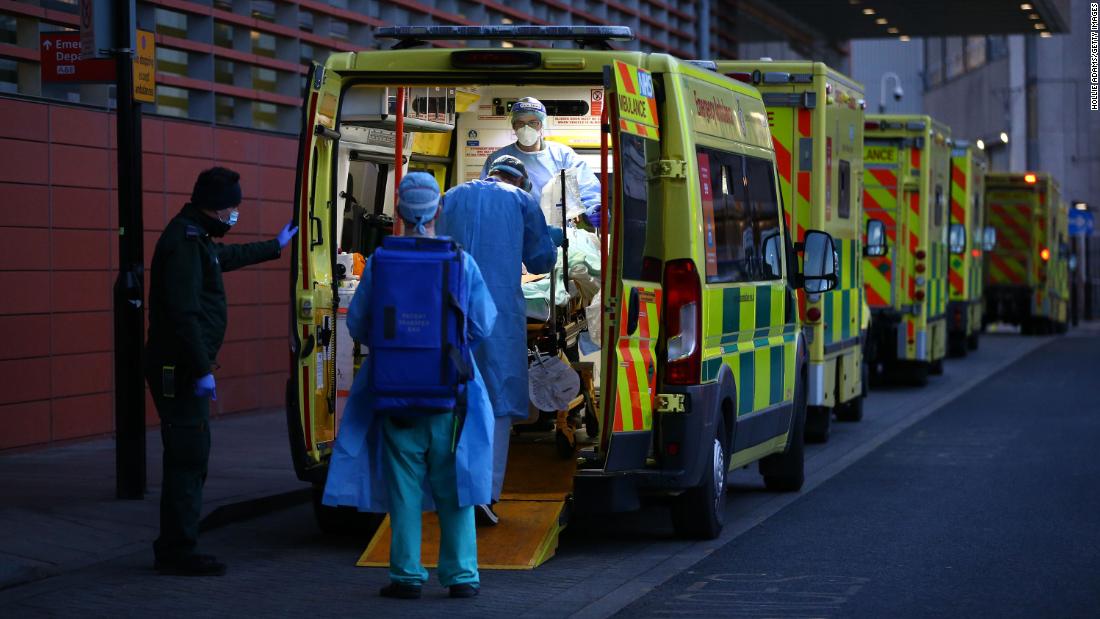A year later, the pandemic shows little sign of loosening its grip on the daily lives of billions of people. Cases continue to rise dramatically in some parts of the world, and each day the losses increase, as more people lose loved ones to Covid-19, lose a business or lose their livelihood.
On January 15, the official death toll in the coronavirus pandemic exceeded 2 million, according to Johns Hopkins University.
Although the figure of 2 million is frightening, experts say the actual number of deaths is probably much higher. Only confirmed deaths from Covid-19 are included in the count, which means that people who die without a firm diagnosis may not be included.
Likewise, many people will have been infected with the coronavirus without having a positive test to confirm it. In the early stages of the pandemic, fewer tests were available, and tests remain inadequate in many countries.
However, with a world population of about 7.67 billion, according to the latest World Bank figures, the global case count suggests that about one in 76 people have had the virus.
The world exceeded the limit of 1 million confirmed cases on April 2 and 10 million on June 28, according to data from Johns Hopkins University.
It took until November 7 for the world to register 50 million confirmed cases. Since then, the trend has accelerated sharply. The 90 million carton mark was passed less than three weeks ago, on January 10.
The second most affected country in terms of overall case numbers, India, accounts for just over a tenth of confirmed global cases. There were more than 152,000 deaths there, according to Johns Hopkins.
Brazil recorded more than 8.8 million confirmed cases of the virus and 217,000 deaths, the second highest number of deaths after the United States.
Europe has also been hit hard and many countries have struggled to contain a second wave of infections since the fall. The UK had the worst performance, with over 3.6 million confirmed cases and more than 100,000 deaths – the fifth highest number of deaths in the world.
While governments around the world are trying to limit the spread of the virus, the emergence of new, more infectious variants is causing great concern to scientists.
One of these variants was first detected in southeastern England last year; another was detected in South Africa and two more in Brazil. A variation was also observed in the state of California, in the United States, which may or may not be generating renewed propagation there.
Scientists are racing to see if changes in the virus will make him susceptible to available treatments and vaccines, amid fears that the mutations will allow them to escape some of the immunity induced by vaccination.
Covid-19’s mass vaccination programs appear to offer the fastest way out of the pandemic – but countries’ access to vaccine supplies and the ability to distribute and administer vaccines vary widely.
In the United States, President Joe Biden has set a goal to administer 100 million doses of the vaccine in his first 100 days in office. More than 17.5 million doses were administered across the country as of Thursday, the day after his oath.
Infectious disease specialist Anthony Fauci said that despite challenges with the distribution and administration of vaccines, the US “can and should” vaccinate 70-85% of US adults by the end of the summer, which may mean an appearance normality in autumn.
In the UK, the government aims to give all the most vulnerable groups at least a first dose by mid-February, and to have all adults vaccinated by autumn.
In the meantime, all those who have not been vaccinated around the world must continue to rely on the social distance, hygiene and mask measures that have become familiar since Covid-19 came on the scene.
No one knows how many tens of millions of people worldwide will be infected with the coronavirus – or how many millions more will die – before this pandemic is controlled.
In 2021, hopes remain high that modern science and medicine can prevail against Covid-19 with a fraction of that death toll.
CNN’s Byron Manley and Maggie Fox contributed to this report.
